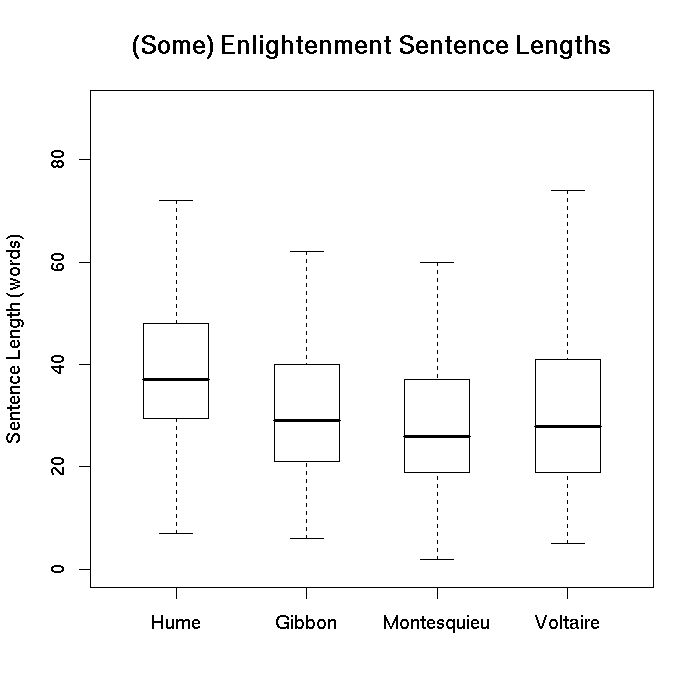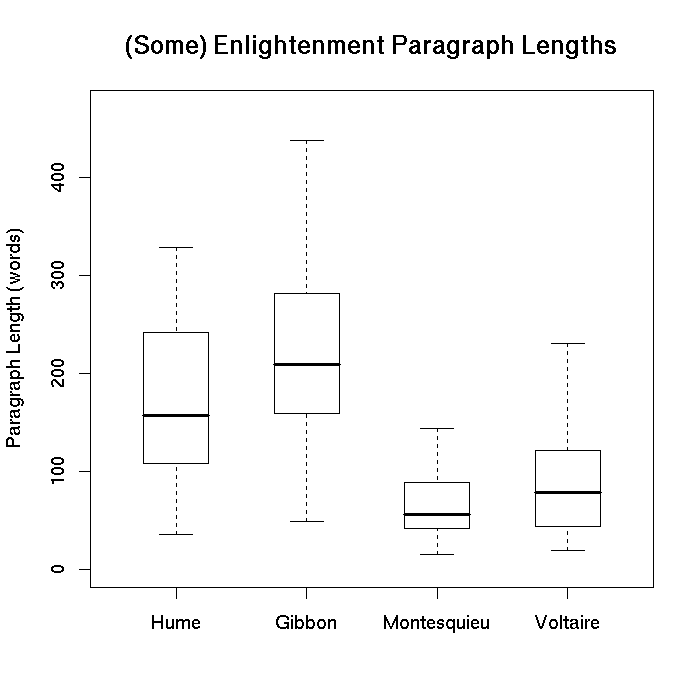February 21, 2007
Precision, poetry and paragraphs
On Feburary 7, 2007, Maurice Druon, the honorary perpetual secretary of the Académie Française, explained to the European Parliament in Brussels that
L'italien est la langue des chansons, l'allemand est bon pour la philosophie et l'anglais pour la poésie. Le français est une langue plus précise et rigoureuse.
Italian is the language for songs, German is good for philosophy and English for poetry. French is a language that is more precise and rigorous.
(For context and jokes, see my post "Is French the safest language for legal purposes?", 2/15/2007.) At exactly the same time, give or take a few hours, the Turkish novelist Elif Shafrak was explaining to Julie Bosman in New York City that
Writing in English forces her to rediscover her literary voice, she said. English is inherently mathematical, she noted, arming a writer with the perfectly precise word to match the meaning, while Turkish is an emotional, sentimental tongue, she said, better suited for writing about sorrow and the past. ["Novelist Endangered By Her Book", New York Times, 2/10/2007]
This is all perfectly consistent once we remember that poetry is inherently mathematical.
224 years earlier, Antoine de Rivarol proposed ("L'Universalité de la langue française", 1783) that French syntax is simply the order of thoughts in "la logique naturelle à tous les hommes" ("the natural logic of all men"), so that
Ce qui n'est pas clair n'est pas français ; ce qui n'est pas clair est encore anglais, italien, grec ou latin.
What is not clear is not French; what is not clear is still English, Italian, Greek or Latin.
(See my post "French syntax is (in)corruptible", 10/26/2005, for more context and jokes.)
Expanding on this theme, in 1967 Serge Doubrovsky wrote ( "New critics and old myths", Yale French Studies, No. 38, The Classical Line: Essays in Honor of Henri Peyre, pp. 18-26):
Classicism as everyone knows is typically French; yet, while being typically French, it is at the same time, and by definition, universal. Its universality is due to the twin cardinal virtues of order and clarity. Order ... means the salutary enforcement of an authoritarian government on the body politic and the imposition of a strict set of rules and precepts on literature. Clarity is that unique pellucid quality of the French language once the impurity of concrete reference and the dross of emotional and imaginative outbursts have been removed. Sully ... said that "ploughing and pasturing are the two udders that feed France"; in much the same way, order and clarity are the two founts of classicism and from them every thoroughbred Frenchman must drink.
A fine example of the French neo-classical style, applied to linguistics, can be found in a radio interview with Jacques Lacan from 1970, in which he provided "answers to seven questions submitted by Robert Georgin" (Broadcast in June 1970 by RTB in Belgium and ORTF in France. The text of his responses (which were written out and read rather than improvised) was published as "Radiophonie" in Scilicet 2/3, 1970. Here's a characteristic passage:
La linguistique, avec Saussure et le Cercle de Prague, s’institue d’une coupure qui est la barre posée entre le signifiant et le signifié, pour qu’y prévale la différence dont le signifiant se constitue absolument, mais aussi bien effectivement s’ordonne d’une autonomie qui n’a rien à envier aux effets de cristal : pour le système du phonème par exemple qui en est le premier succès de découverte.
On pense étendre ce succès à tout le réseau du symbolique en n’admettant de sens qu’à ce que le réseau en réponde, et de l’incidence d’un effet, oui, – d’un contenu, non.
C’est la gageure qui se soutient de la coupure inaugurale.
Linguistics, with Saussure and the Prague Circle, establishes itself by a disconnection which is the line placed between the signifying and the signified, so that the difference prevails whereby the signifying is constituted absolutely, but also, in effect, is arranged with an autonomy that rivals the results of crystallization: for the phonemic system, for example, which is its first successful discovery.
We think to extend this success to the whole network of the symbolic, in allowing meaning only to what the network answers for, and of the impact of an effect, yes -- of a content, no.
This is the wager that is sustained by the initial disconnection.
I may have mistranslated parts of this, especially the second sentence, which I am not quite sure how to parse. (I think I can parse the rest of it, though I don't entirely understand it.) If you want to have a shot at it, two of the key questions are:
1) what is the antecedent of en in "le réseau en réponde"?
2) where does the prepositional phrase beginning "de l’incidence..." fit in?
(If you think you have a really good answer to these questions, let me know.)
My failure to understand this passage, if we follow the logic of Rivarol, implies either that Lacan's discourse isn't French, or that I'm not human. I'm worried about this, because if you listen to Lacan reading the passage, you can hardly doubt that it is French, or that its author has drunk deep from the udders of classicism:
I guess you could let both of us off the hook by suggesting that my knowledge of French isn't good enough to understand him. Or you could adopt Noam Chomsky's suggestion that Jacques Lacan was "an amusing and perfectly self-conscious charlatan". On that theory, perhaps he cleverly passed off sentences in some other language (or none) as if they were French. Another Lacan quotation, this one from his 11th seminar, may help here:
Cette méthode nous porterait ici à la question sur le possible, et l'impossible n'est pas forcément le contraire du possible, ou bien alors, puisque l'opposé du possible c'est assurément le réel, nous serons amenés à définir le réel comme l'impossible.
This method would bring us here to the question of the possible, and the impossible is not necessarily the contrary of the possible, or indeed, since the opposite of the possible is certainly the real, we will be led to define the real as the impossible.
Whether this stuff is French or not, Lacan was good enough at it to lecture for seventeen years at the École Normale Supérieure in Paris, where he profoundly influenced the generation of French men and women who helped write the current body of European law, as well as the teachers of succeeding generations. Brussels beware.
On a more serious note, I've been puzzled for many years about where the stereotype of French precision, rigor and clarity comes from. I take it as obvious that such qualities could not not be characteristic of one language as opposed to another. These might be the characteristics of a style; but as far as I can tell, French writing over the centuries has displayed about the same mixture of clarity and obscurity, rigor and laxness, precision and carelessness, as writing in English or writing in other languages.
Perhaps, like many other group stereotypes, this one has no basis whatever in reality. But recently I've been wondering whether it might be nothing more than a matter of typography: specifically, paragraph length.
As Antoine de Rivarol's essay indicates, this stereotype was planted during the 18th century. And surely English-language writers of the enlightenment were just as lucid as their counterparts across the channel? I think they were; but their writing seems denser and less accessible, I think, at least in trivial matters like the length of paragraphs.
Here's a quick check of this hypothesis, based on the Author's Advertisement and Section I of Hume's An inquiry concerning the principles of morals (1751), the first chapter of Gibbon's Decline and Fall of the Roman Empire (1776), the Avertissement de l'auteur and Section I of Montesquieu's L'Esprit des Lois (1748), and the first chapter of Voltaire's Siècle de Louis XIV (1751).
Mean values:
Mean (median) sentence length in orthographic words |
Mean (median) paragraph length in orthographic words |
|
| Hume | 40.3 (37) | 190.4 (157) |
| Gibbon | 31.8 (29) | 231.3 (209) |
| Montesquieu | 28.9 (26) | 64.8 (56) |
| Voltaire | 32.1 (28) | 90.9 (78) |
And here are boxplots for the distribution of sentence and paragraph lengths in these same samples:


I don't know whether this difference would hold up in a wider survey of writers and works from that period. Nor do I know whether the difference in paragraphing reflects a basic difference in the size or complexity of rhetorical structures, or just a superficial difference in typographical style.
One thing I do know: short paragraphs don't guarantee clarity any more than use of the French language does. In Jacques Lacan's bloviation on the history of linguistics, from which the remarkably unclear passage above was taken, the mean paragraph length was 42.8 words, and the median was 35.
Posted by Mark Liberman at February 21, 2007 10:39 AM